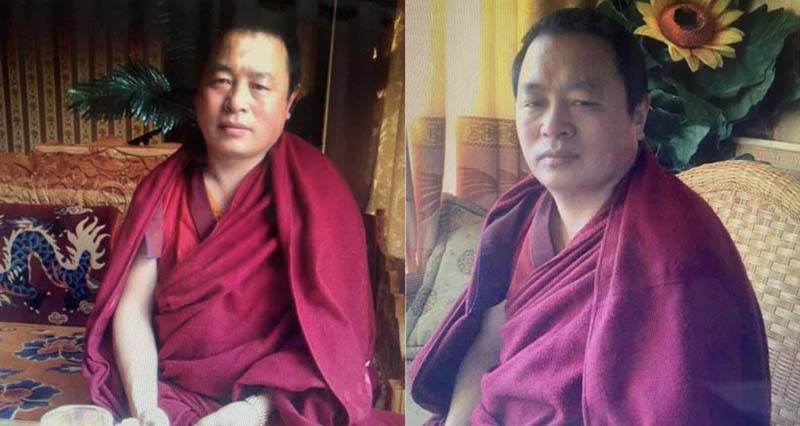Dharamshala – Chinese authorities arrested a Tibetan monk for allegedly publishing Tibetan books from outside Tibet and contacting Tibetans in exile. He disappeared for more than eight months after his arrest and nothing has been learned about where he is being held, whether he has been sentenced or not, etc. In 2023, the Chinese authorities tightened restrictions on the publication of Tibetan books, particularly books from outside Tibet.
According to a reliable source, in June,2023, Chinese police arrested a Tibetan monk called Lobsang Thamke, former director of the Kirti Monastery Libarary in the Ngawa county, eastern Tibet, over allegedly publishing Tibetan books from outside Tibet and contacting Tibetans in exile. The source to TPI, "Thamke was arrested by Chinese police, in June, 2023, for allegedly publishing Tibetan books from the three major Geluk monasteries in the southern India and for contacting Tibetans in the Exile."
"It has been more than eight months since his arrest, but so far nothing has been revealed about his whereabouts, whether he has been sentenced or not, or his state of health, all of which remain unknown", said the source. Because of China's control over the flow of information from Tibet, it is very difficult to obtain information about Tibetans who have been arrested. The Chinese authorities warn family members and other Tibetans against revealing the truth about them, and they will be arrested for providing such information.
Tibetan monk Lobsang Thamke, 54, comes from the village of Meuruma in Ngawa county, eastern Tibet. His father's name is Katson and his mother's name is Shuka. He was director of the Kirti Liberary monastery in Ngawa county.
According to another reliable Tibetan source, in 2023 the Chinese authorities tightened restrictions on the publication of Tibetan books, particularly books from outside Tibet. "The Chinese authorities also closed publishing houses in Tibet and a Tibetan publisher in Ngawa county was sentenced to three years in prison for publishing Tibetan books," this source told Tibet Post International (TPI) exclusively. But the TPI was unable to find any further details, such as the person sentenced, his name, place of origin, or the reasons or charges for his three-year imprisonment, due to the severe restrictions imposed by the Chinese authorities on the circulation of information about Tibetans.
With regard to publishing freedom, another source told TPI: "The publication of Tibetan books is becoming increasingly difficult, with the Chinese authorities imposing many restrictions, particularly on words such as freedom, Gyalwa and Rinpoche, and many publishers fearing problems from the Chinese authorities and rejecting the publication of books from outside Tibet, even if they are not linked to sensitive words".
China-Tibet: The one-thing you need to know
Over the past 70 decades, there has been ongoing political repression, social discrimination, economic marginalization, environmental destruction, and cultural assimilation, particularly due to Chinese migration to Tibet which is fueling intense resentment among the people of occupied Tibet.
The communist-totalitarian state of China began its invasion of Tibet in 1949, reaching complete occupation of the country in 1959. Since that time, more than 1.2 million people, 20% of the nation's population of six million, have died as a direct result of China's invasion and occupation. In addition, over 99% of Tibet's six thousand religious monasteries, temples, and shrines, have been looted or decimated resulting in the destruction of hundreds of thousands of sacred Buddhist scriptures.
Until 1949, Tibet was an independent Buddhist nation in the Himalayas which had little contact with the rest of the world. It existed as a rich cultural storehouse of the Mahayana and Vajrayana teachings of Buddhism. Religion was a unifying theme among the Tibetans -- as was their own language, literature, art, and world view developed by living at high altitudes, under harsh conditions, in a balance with their environment.


![Tibet has a rich history as a sovereign nation until the 1950s when it was invaded by China. [Photo: File]](/images/stories/Pics-2024/March/Tibet-Nation-1940s.jpg#joomlaImage://local-images/stories/Pics-2024/March/Tibet-Nation-1940s.jpg?width=1489&height=878)


















